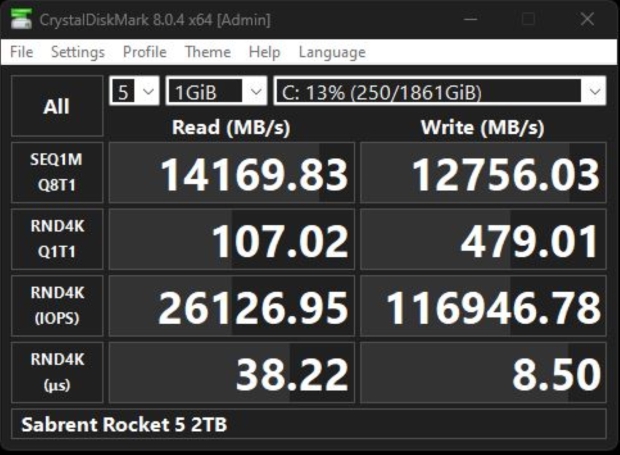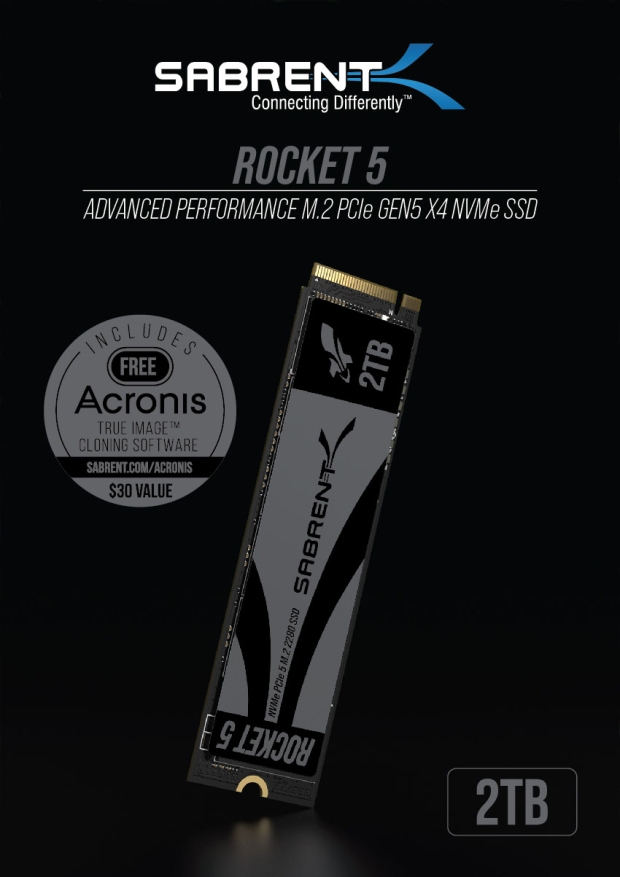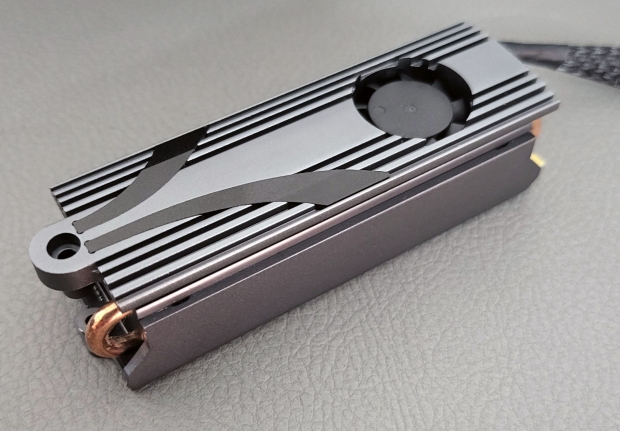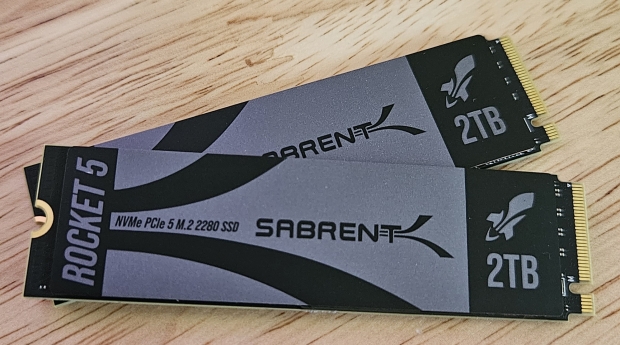Sabrent has just unleashed its next-gen Rocket 5 Gen 5 SSD, which pushes up and above the 14,000MB/sec (14GB/sec) barrier for next-gen storage leadership. Check it out:

Sabrent's new Rocket 5 SSD benched in CrystalDiskMark @ 14GB/sec (source: Sabrent)
The storage company worked closely with Phison on its new Rocket 5 Gen 5 SSD, which is capable of sequential read speeds of over 14,000MB/sec and sequential write speeds of over 12,000MB/sec. This means it's the highest-performing PCIe 5.0 SSD on the market and should be the top candidate to take a Gen 5 M.2 slot inside of your PC.
Sabrent explains its new Rocket 5 Gen 5 SSD was developed in collaboration with Phison and has "exceeded" their expectations and performance limits to deliver the fastest Gen 5 SSD to the market. Sabrent shared with us a screenshot of its new Rocket 5 Gen 5 SSD running CrystalDiskMark, where you can see it boosting up to 14169MB/sec in reads, and an incredible 12756MB/sec in writes.
It's not just CrystalDiskMark either, but Sabrent says that its new Rocket 5 Gen 5 SSD is pushing 14GB/sec+ in storage tests like 3DMark Storage Test, PCMark Storage Tests, Anvil, ATTO, and more.

Sabrent Rocket 5's upcoming retail packaging (source: Sabrent)
But for me, the biggest selling point that Sabrent's new Rocket 5 Gen 5 SSD has is that it runs cooler than all of the previous Gen 5 SSD storage solutions. The company ran some tests, showing that its new Rocket 5 Gen 5 SSD runs cooler than earlier Gen 5 SSDs and that most motherboards can run their new Rocket 5 SSD with the built-in cooling solutions on current motherboards.
Sabrent says that the built-in cooling solutions on motherboards "can handle these new drives just fine" and that you do NOT need to install a giant SSD cooler that other SSD makers need on their Gen 5 drives to keep them cool. But, if you wanted to run your new Sabrent Rocket 5 Gen 5 SSD with an SSD heatsink, the company has an SSD heatsink available if your motherboard doesn't have one or if you're using it on expansion cards running in a PCIe slot.

The new Gen 5 SSD heatsink for the Sabrent Rocket 5 SSD (source: Sabrent)
Sabrent does recommend running the Rocket 5 with a heatsink, whether it's the one built into your motherboard or their new Gen 5 heatsink. Another note here is that the new Gen 5 SSD heatsink doesn't make a high-pitched whine, so it's well-suited to the new Rocket 5 Gen 5 SSDs.
Sabrent will have its new Rocket 5 Gen 5 SSDs available in 1TB, 2TB, and 4TB capacities, with the 1TB Rocket 5 SSD pumping out 13GB/sec reads and 9.5GB/sec writes, while the 2TB and 4TB Rocket 5 SSDs will enjoy those blistering 14GB/sec reads and 12GB/sec writes.
As for when they'll be available, Sabrent says its new Rocket 5 SSDs will be available "very soon".



